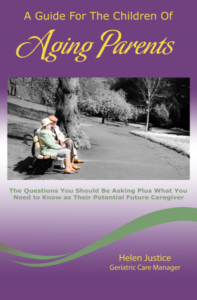
A personal care agreement, also known as a caregiver contract or elder care agreement, is a legally binding document that outlines the terms and conditions of caregiving services provided by a family member or another individual to an elderly or disabled person. This agreement is typically used when a family member or caregiver is providing care in exchange for financial compensation or other benefits.
Here are some key elements to include in a personal care agreement:
Identification of the parties:
Clearly state the names and contact information of both the caregiver and the care recipient (elderly or disabled person).
Scope of services:
Describe in detail the specific caregiving services to be provided by the caregiver. This may include assistance with activities of daily living (ADLs), medication management, meal preparation, transportation, companionship, or other necessary tasks.
Schedule and duration:
Specify the expected schedule and duration of caregiving services. Include the days and hours of care, as well as any anticipated changes or flexibility required.
Compensation:
Outline the financial arrangement between the caregiver and care recipient. Specify the agreed-upon hourly rate or monthly fee, payment frequency, and any additional benefits, such as health insurance coverage or contributions to retirement savings. It’s essential to consult with a legal or financial professional to ensure compliance with tax and labor laws.
Responsibilities and limitations:
Clearly define the responsibilities and limitations of the caregiver. This may include restrictions on medical procedures, limitations on driving or transportation, or specific tasks that require authorization from a healthcare professional.
Confidentiality and privacy:
Include a clause to maintain the privacy and confidentiality of the care recipient’s personal information and medical records. Emphasize the caregiver’s responsibility to protect the privacy and confidentiality of the care recipient.
Termination of the agreement:
Specify the conditions under which the agreement can be terminated by either party. This may include factors such as notice periods, changes in health status, or changes in caregiving
needs.
Signatures and witnesses:
Both the caregiver and care recipient should sign the agreement, indicating their understanding and acceptance of the terms. It’s advisable to have the agreement witnessed or notarized for added legal validity.
Remember, a personal care agreement is a legally binding document, and it’s important to consult with a legal professional or elder law attorney to ensure compliance with local laws and regulations. Each situation is unique, so it’s crucial to tailor the agreement to the specific needs and circumstances of the caregiving arrangement.
Need advice on caring for your aging parents? Give us a call at 916-524-5151.



Stay Up To Date With AWGCM